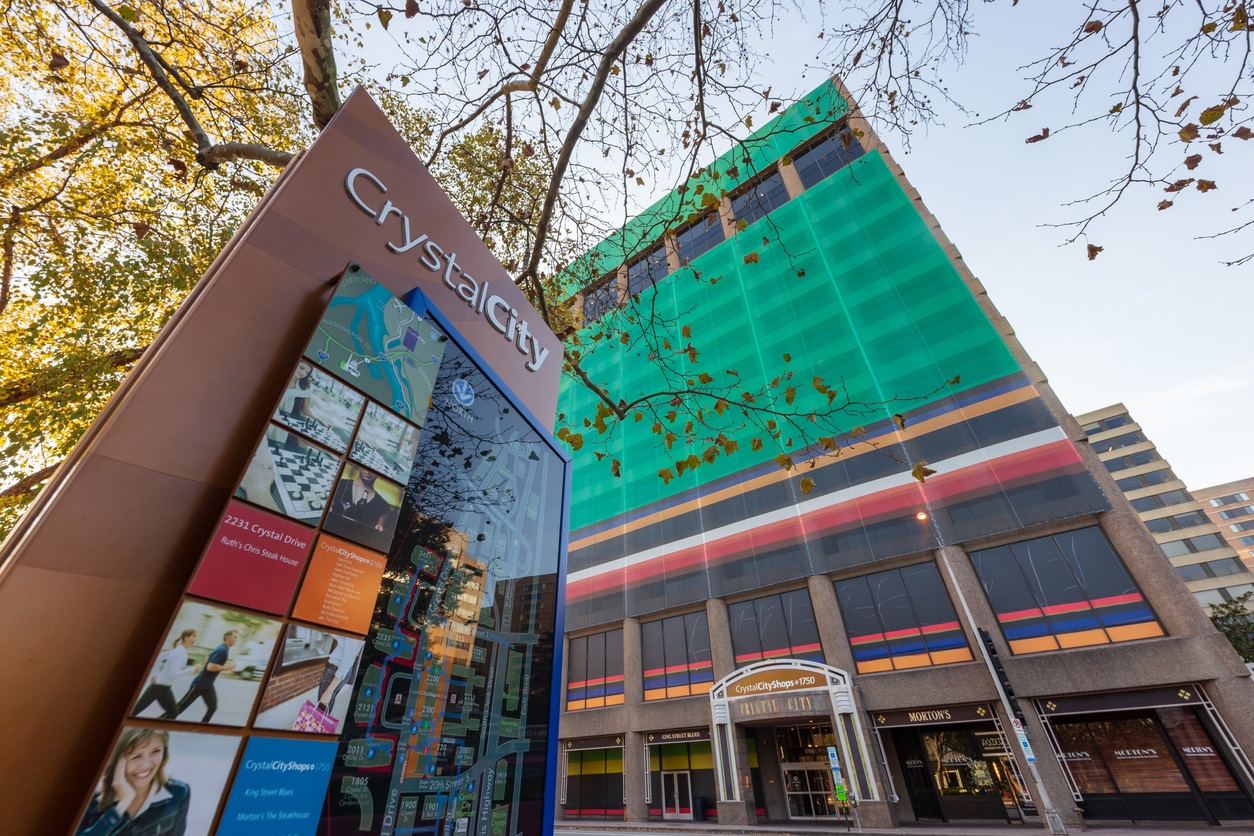Technology giants such as Amazon, Google and Apple have been expanding quickly, building distribution centers as well as campuses and headquarters across North America. Amazon is currently starting construction on HQ2 in Crystal City, while Apple is expanding in Seattle and Google is moving into San Jose, Calif.
While this growth generally signals more jobs and increased new construction, how do these moves actually impact the housing markets?
Amazon’s HQ2 Plans
Amazon is moving forward with its Northern Virginia expansion. Building plans for two, 22-story towers in the Metropolitan Park in Pentagon City have been approved, according to Bisnow. The development, being designed by ZGF Architects, will reportedly include more than 69,500 square feet and 1,900 underground parking spaces.
Part of Amazon’s agreement with neighboring Crystal City? The tech giant must contribute $20 million toward affordable housing in the county. Earlier this month, Amazon donated $1 million to a related project in the Virginia Square neighborhood.
What happened to Long Island City in Queens? It was thrust into the limelight after Amazon selected the city as one of two winners, then pulled the plug following a controversial response.
It’s been two years since Amazon backed out on the Long Island City HQ2 plans. Is the city heartbroken? The initial news itself was enough to liven up the markets. By the time plans were canceled, Long Island City had already experienced a flurry of activity.
“So much has happened since Amazon nixed its HQ2 plans in Long Island City last year,” says Eric Benaim, CEO of Modern Spaces, a brokerage in Queens. “The neighborhood’s condo market has been particularly booming. Since Amazon’s departure, Modern Spaces has had 483 units go into contract, which is nearly double the number of condo sales we had from all of our buildings combined in 2018.”
Luciane Serifovic, CEO and founder of Luxian International Realty, also saw a change in the New York City market following Amazon’s announcement.
“We saw an increase in demand,” says Serifovic, who added that consumers were hoping to take advantage of simple real estate rules regarding supply and demand.
“If the demand is there, properties sell, and as the inventory diminishes, the prices go up if the demand continues,” says Serifovic. “Many people who purchased after the announcement of Amazon had the expectation of building equity for their property much faster.”
Benhaim believes the Amazon deal would have reshaped LIC, transforming what he says is a “predominantly ‘bedroom community’ into the next Silicon Valley.”
“The residents of Queensbridge Houses, the largest affordable housing project in the U.S., would have benefited the most from the deal,” says Benhaim, “as Amazon proposed 1,500 job placements for its residents.”
A Chain Reaction
The LIC response reflects a controversial conversation that many regions across the U.S. are currently having as tech giants continue their path toward expansion.
For example, some LIC residents had concerns about a mega corporation moving in. Would this force out residents because of price increases? Would affordable housing cease to exist? Would incentives offered to Amazon negatively impact taxpayers.
Those concerns may be fading, especially as the Amazon announcement exposed the benefits of moving into the LIC market.
“While we are uncertain about other major tech companies coming to Long Island City, we are seeing a growing interest from life sciences companies in coming to the neighborhood,” says Benhaim. “Additionally, Wirecutter, The New York Times and Estée Lauder recently announced plans to expand in the area.”
Countering the argument that insufficient inventory could bring affordability concerns, Benhaim says that the surrounding areas would work as a type of buffer, taking some of the weight off the city that’s being developed.
“I see an influx of jobs only positively for real estate, businesses and communities,” says Benhaim. “If the infrastructure doesn’t have the inventory to accommodate the demand, neighboring towns would benefit it as well.”
That conversation weighing risk and reward continues on, however—especially in states where affordability is already a concern.
Google’s Expansion Plans
Google has been making moves across the country. CEO Sundar Pichai announced last year that the company was going to be making $13 billion in investments throughout 2019, expanding in 14 states, prompting the creation of 10,000-plus jobs and making the tech company a presence in a total of 24 states. According to the Wall Street Journal, Google also recently announced it would be building a 6 million-square-foot campus in San Jose, Calif.
What does that mean for the city of San Jose? Increased home prices is a concern for some residents, as California’s surrounding towns have had trouble attracting specific professionals, such as teachers and firefighters, because they can’t afford to live near their jobs, according to the WSJ.
“We’ve already seen growth in neighboring towns, such as Morgan Hill, Gilroy, Hollister and South San Jose,” says Doug Evans, managing broker of Coldwell Banker Los Gatos.
The WSJ also reported that in 2018 some activists protested the project, citing gentrification would force out current residents.
“There are still a lot of details about the plans left to be ironed out, such as plans for below-market housing complexes,” says Evans. But he believes conversations surrounding the issue have been productive. “Overall, the plans are promising and the collaboration between Google and the city are encouraging.”
Evans says the San Jose plans could provide much-needed growth for the region.
“Downtown San Jose is finally going through a renaissance that has energized the city and the surrounding areas,” says Evans. “Low interest rates and positive attention on the area has resulted in a pick-up in the local market.”
Prosper or Weaken: The Consensus
Overall, the real estate industry has found that these expansions typically help housing markets in the long term.
“In other parts of the country that have experienced similar corporate development projects, a boom in housing interest and expansion was a result,” says Evans.
While LIC has caught the eye of other major corporations, real estate sources say they still regret Amazon’s decision to back out.
“I think the real estate industry, along with the entire community, was optimistic about the proposed plans,” says Benhaim. “From local restaurant owners to parents with children attending school in the area, we all welcomed Amazon and were heartbroken when the deal was cancelled. One thing Amazon did do was help continue to put Long Island City on the world map.”
When it comes down to it, says Serifovic, who works primarily with luxury consumers, it’s all about how it impacts homebuyers and sellers. If it will help them build equity, they’ll make the move.
“Do these big moves impact decision to buy in an area? Absolutely,” says Serifovic. “Luxury buyers are educated and always make informed decisions. It’s all about expectations.”
Evans is optimistic that his market’s growth will be a positive experience, despite the concerns surrounding affordability and inventory.
“As a native San Josean, I am excited about the growth the city has already seen,” says Evans. “The Google campus will not only bring high-quality jobs to the area for Google, but there will be added jobs in restaurants, stores and other businesses that will fill the need of the influx of people moving to the area.”
Agents and brokers, what type of market changes have you experienced from these types of expansions?
Liz Dominguez is RISMedia’s senior editor. Email her your real estate news ideas at ldominguez@rismedia.com.








It does not sound like any of the people in this article researched the ramifications of these firms moving into the community in an in-depth enough fashion to provide accurate answers.